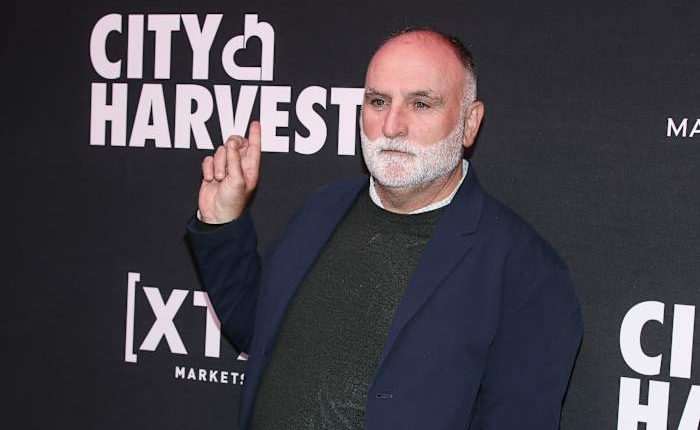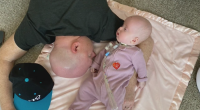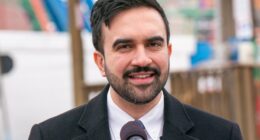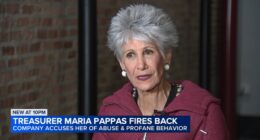Share this @internewscast.com
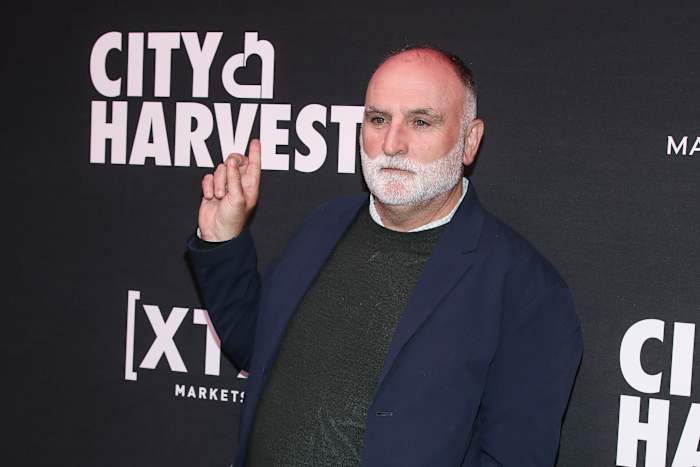
José Andrés remembers when he went to Haiti after the devastating 2010 earthquake that the government estimates killed more than 300,000 people.
“We started by cooking in the streets, you know?” shared the James Beard award-winning Spanish chef, who runs a group with over 40 restaurants worldwide. “I was providing meals after an earthquake without any photographers or cameras around; it was just me and my friends doing the work.”
This marked the beginning of World Central Kitchen, a significant nonprofit organization that now generates hundreds of millions of dollars annually, delivering meals swiftly in response to humanitarian crises. Andrés’ reputation has expanded alongside, especially as his NBC cooking competition show with Martha Stewart titled “Yes, Chef” continues to air, and his new book “Change the Recipe: Because You Can’t Build a Better World Without Breaking Some Eggs” was released last month.
“Now, sometimes when I go, everybody seems to have a camera,” he said. “It’s OK. I just go and try to do the best I can and donate my time.”
Andrés’ initiatives have garnered numerous accolades. Earlier this year, he was awarded the Presidential Medal of Freedom by then-President Joe Biden, who mentioned that the honorees “answer the call to serve and inspire others to do the same.”
Ricardo Leite, senior vice president and head of international markets at Discover and president of Diners Club International, said Diners Club donated $750,000 earlier this month to World Central Kitchen to provide approximately 150,000 meals.
“When looking for a nonprofit to collaborate with for our 75th anniversary, we wanted one that builds on our Together for Change corporate social responsibility program to create change where it matters most,” said Leite. “This collaboration allows us to pay forward our legacy by helping provide comforting meals to those most in need.”
The Associated Press recently spoke with Andrés about how he is dealing with the world’s ongoing crises. The interview was edited for clarity and length.
_____
Q: Why is the Diners Club International donation to World Central Kitchen so important?
A: It’s important for the message that it sends, not only about donating to World Center Kitchen, but the important moment that philanthropy is going to be playing in a moment where we are seeing cutbacks. USAID is not being active any more and it used to be very important around the world. NGOs (Nongovernmental organizations) like World Central Kitchen in America and overseas are important because they occupy a role that governments don’t occupy very often… It sends the message to every other foundation, private business, and individuals: Everybody needs to be very thoughtful about remembering that there are organizations doing vital work to bring relief or to solve problems that many people in America or abroad are facing.
Q: Will World Central Kitchen have to step in to fill in the gap left by USAID cuts?
A: We’ve never been supported really by them, but we work alongside them. World Central Kitchen is in Myanmar and in Thailand after the earthquake. In the old days, there would’ve been a rapid response team of USAID showing up in those scenarios to help those countries take care of their needs in an emergency. So the answer is yes. It’s not only us, obviously. We’re not everywhere, but where we are, usually we occupy a very big role in the initial emergency response. For us, that means activating money that helps us execute a response that is beyond meals — it’s meals, it’s water, everything that needs to happen. And in the best fashion of World Center Kitchen. it is channeled through the local economy, so in the process of responding to the emergency, we are helping the local economy.
Q: Earlier this month, World Central Kitchen had to suspend operations in Gaza because you had no more supplies. Are you hopeful that will change soon? (This interview was done before Monday when Israel lifted its three-month blockade on supplies to Gaza.)
A: We are ready. We are waiting. We hope that common sense will prevail. We hope that hostages will be released, that civilians in Gaza will not be afraid any more of bombs falling on their heads, and where everybody, Palestinians and Israel, can hope for a better tomorrow with peace. This will only happen with a ceasefire where nobody else is dying — where Gaza is not under attack, where Israel is not under attack, where hostages are released and where the children of Gaza can go back to school and they can start dreaming of rebuilding. The vast majority of people have common sense. They want to live in peace and prosperity. We cannot let the very, very few dictate the rules on behalf of the many that want to live in peace.
Q: Is this the time for major donors to give more?
A: I would say money does no good in the bank. I mean it’s earning interest. But I think it’s good when the money is used to invest in the people and when money is an investment in a better tomorrow.
______
Associated Press coverage of philanthropy and nonprofits receives support through the AP’s collaboration with The Conversation US, with funding from Lilly Endowment Inc. The AP is solely responsible for this content. For all of AP’s philanthropy coverage, visit https://apnews.com/hub/philanthropy.
Copyright 2025 The Associated Press. All rights reserved. This material may not be published, broadcast, rewritten or redistributed without permission.
